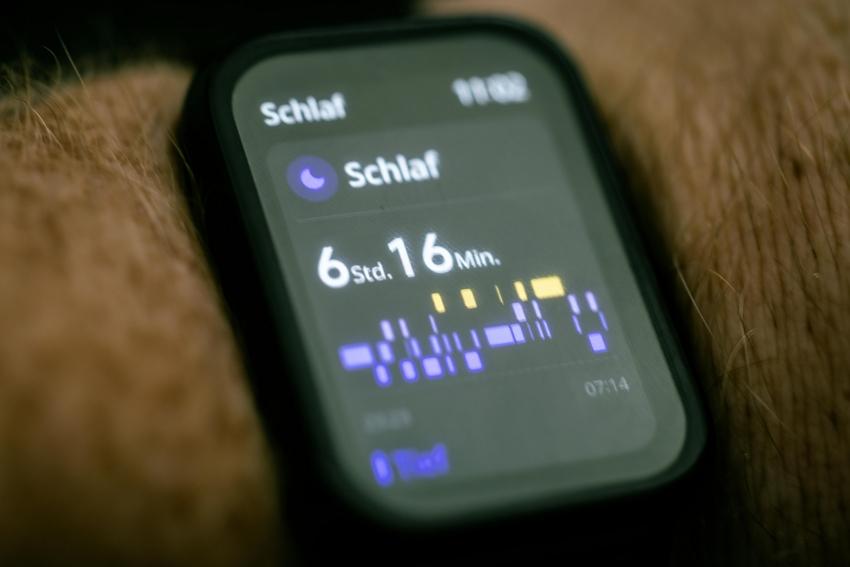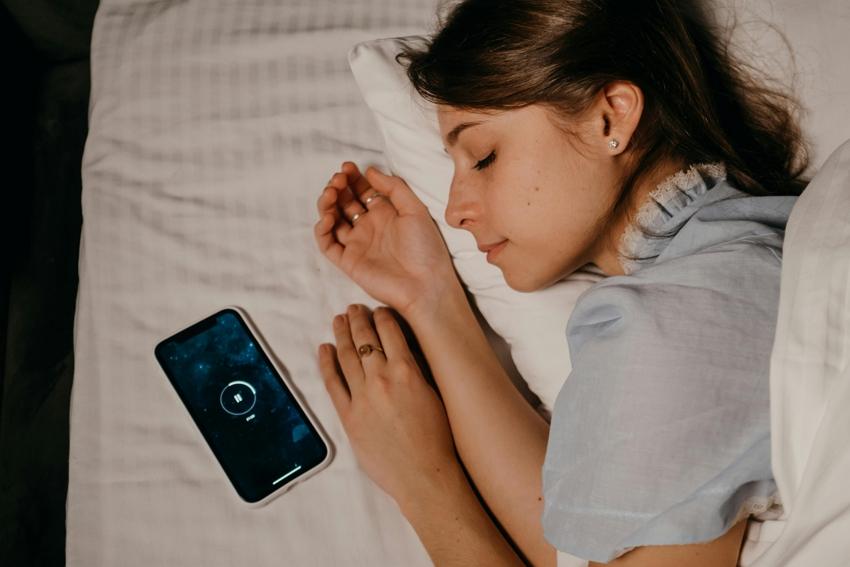If you ever wondered what happens when you close your eyes at night, you are not alone. Many people are curious about their sleep patterns and want to feel rested every morning. A sleep monitoring app is an easy and smart way to track how you sleep. Using a sleep monitoring app helps you understand your nights better and make positive changes for your days. In this guide, we will talk about what a sleep monitoring app is, what it tracks, what features to look for, and which options are popular right now. Plus, we will introduce you to a smart monitor using our main keyword, sleep monitoring app, and show you why having one can make a big difference.
What Is a Sleep Monitoring App and What Does It Track?
A sleep monitoring app is a convenient digital tool that helps you track and understand your sleep. Most of these apps are used on a phone or connected device and are designed to observe how well, how long, and how deeply you sleep each night.
What Does a Sleep Monitoring App Track?
- Sleep Duration: How many hours do you sleep from the moment you close your eyes until you wake up?
- Sleep Stages: Whether you are in light, deep, or REM sleep during different times of the night.
- Snoring: Many apps listen for snoring and report how often it happens.
- Movement: Some can tell if you toss and turn often.
- Sounds: A few apps record or analyze sounds in your environment, including sleep talking or outside noise.
- Heart Rate: For some wearables, tracking your heartbeat at night is possible.
- Waking Episodes: Find out how many times you wake up and for how long.
- Bedtime Schedule: See if you go to sleep and wake up at the same time every day.
Key Features to Look For: Sleep Stages, Snoring, Sounds, and More
Choosing the right sleep monitoring app can seem overwhelming. Here are some key features to consider if you want to get true value:
1. Detailed Sleep Stages
Look for an app that breaks down your sleep into light, deep, and REM stages. This tells you not just how long you slept, but how well you slept. Deep sleep is especially important for feeling refreshed.
2. Snoring Detection
If you suspect that you snore, or if you have a partner who does, snoring detection can be a game-changer. The app uses your phone’s microphone to listen for snoring sounds and keeps a record.
3. Sound Recording
Some sleep monitoring apps let you listen to the sounds that occurred while you slept. This can help identify issues like noise from outside or if you talk in your sleep.
4. Movement Tracking
A good app will show you if you are a restless sleeper. It checks for tossing, turning, and movement during the night.
5. Smart Alarm
Some apps have a smart alarm feature that wakes you during the lightest phase of sleep, making it easier to get up.
6. Easy-to-Read Reports
Look for an app that puts your sleep data into simple charts or graphics.
7. Integration with Wearables
Many of the best apps work with smartwatches or fitness trackers for even more detailed tracking.
8. Privacy Options
Your sleep is personal. Make sure the app has privacy controls for your data.
How Sleep Apps Collect Data (Phone Sensors vs. Wearables)
Not all sleep monitoring apps work the same way. The two main approaches are using your smartphone or a wearable device.
Smartphones
Many apps use the sensors already in your phone. You simply place the phone on your mattress or nightstand. Here’s what they use:
- Microphone: To capture breathing, snoring, and surrounding noises.
- Accelerometer: Detects movement or vibration patterns that happen with tossing and turning.
This approach is simple since you already have your phone nearby at night.
Wearables
If you want more detailed and accurate data, try an app that connects to a wearable device like a smartwatch or fitness band. These gadgets track:
- Heart Rate: Tells you how your heart changes during different sleep stages.
- Body Movements: Sensitive enough to detect even tiny shifts in your position.
- Blood Oxygen: Some advanced devices even check your oxygen levels at night.
Benefits of Using a Sleep Tracking App Regularly
Using a sleep monitoring app is more than just fun. It can improve your quality of life in several ways:
- Better Self-Awareness: When you see your sleep patterns, you can understand what might be making you tired.
- Healthier Routines: By tracking bedtime and wake-up times, you can build healthy habits that support good sleep.
- Early Warning Signs: By noticing changes in snoring, waking, or heart rate, you might catch early signs of issues like sleep apnea, stress, or other conditions.
- Personalized Advice: Some apps give daily tips based on your sleep data, helping you rest better.
- Motivation to Improve: Watching your progress encourages you to stick with good habits.
- Smart Alarms: Wake up feeling less groggy by getting up at the best moment in your sleep cycle.
Popular Sleep Monitoring Apps: Free and Paid Options
There are many options for a sleep monitoring app, each with strengths and weaknesses. Here are some of the most popular:
Free Options
- Sleep Cycle: Uses sound analysis to track sleep stages and has a smart alarm.
- Sleep as Android: Well-known for detailed tracking and integration with wearables.
- PrimeNap: Great for sleep analysis without a price tag.
Paid Options
- Pillow: Works with iOS and Apple Watch. Offers deep analysis and personalized recommendations.
- AutoSleep: Complete sleep tracking for Apple Watch users, with detailed visuals.
- SleepScore: Advanced sleep tracking technology offers detailed reports and suggestions.
Accuracy: What These Apps Can and Can’t Tell You
It is important to know that a sleep monitoring app is not a medical device. Here’s what it can do:
What It Can Tell
- General Sleep Trends: These apps are great for giving a broad view of your sleeping habits.
- Waking Patterns: Most apps are quite good at knowing when you go to sleep, wake up, and how long you sleep.
- Restlessness: They sense when you are moving a lot during the night.
- Snoring and Sounds: Apps with microphones do a reasonably good job at picking up snoring and other noises.
What It Cannot Tell
- Medical Conditions: Apps are not able to formally diagnose sleep disorders. Only a doctor can do that.
- Exact Sleep Staging: Sleep stages are estimated and are not as accurate as a sleep study at a clinic.
- Everything About Your Brain Activity: Apps can’t see what your brain is doing or know exactly when you enter each stage of sleep.
Sleep Insights: Using the Data to Improve Your Rest
Collecting information is just the start. Here’s how you can use insights from your sleep monitoring app to boost your sleep quality:
- Spotting Trends: Notice what nights are good or bad and look for patterns.
- Connecting Habits and Results: Did you sleep poorly after too much caffeine? Did a workout help you get more deep sleep? Use the data to adjust your day.
- Setting Goals: Aim to get to bed at the same time every night or to reduce snoring nights.
- Making Changes: Use app suggestions to tweak your bedtime routine. Try different things and see what works best for you.
Privacy and Data Security Considerations
Sleep is private, and so is your data. When choosing a sleep monitoring app, look for brands that:
- Upfront About Privacy: Read privacy policies to see how your data is stored and used.
- Offer Controls: Apps should let you decide what to share, with options to delete or export your data.
- Use Secure Servers: Check for apps that use encrypted connections.
- Do Not Sell Your Data: Be wary of free apps that may monetize your habits.
Find the Best Devices to Pair with Your Sleep Monitoring App
Looking for devices that work perfectly with your sleep monitoring app? Check out this smart monitor. Using a smart monitor can improve your sleep tracking results and help you keep an eye on your baby’s or family’s health through real-time reports and alerts.
Conclusion
A good night’s rest can change everything. With the right sleep monitoring app, you can unlock the secrets of your sleep, build healthy habits, and wake up ready for each new day. These apps are easy to use, full of benefits, and ideal for anyone who wants to improve sleep quality. By choosing one that tracks sleep stages, listens for snoring, and keeps your data private, you will get the most value from technology. Remember, while a sleep monitoring app gives helpful insights, always talk to a doctor for health concerns.



